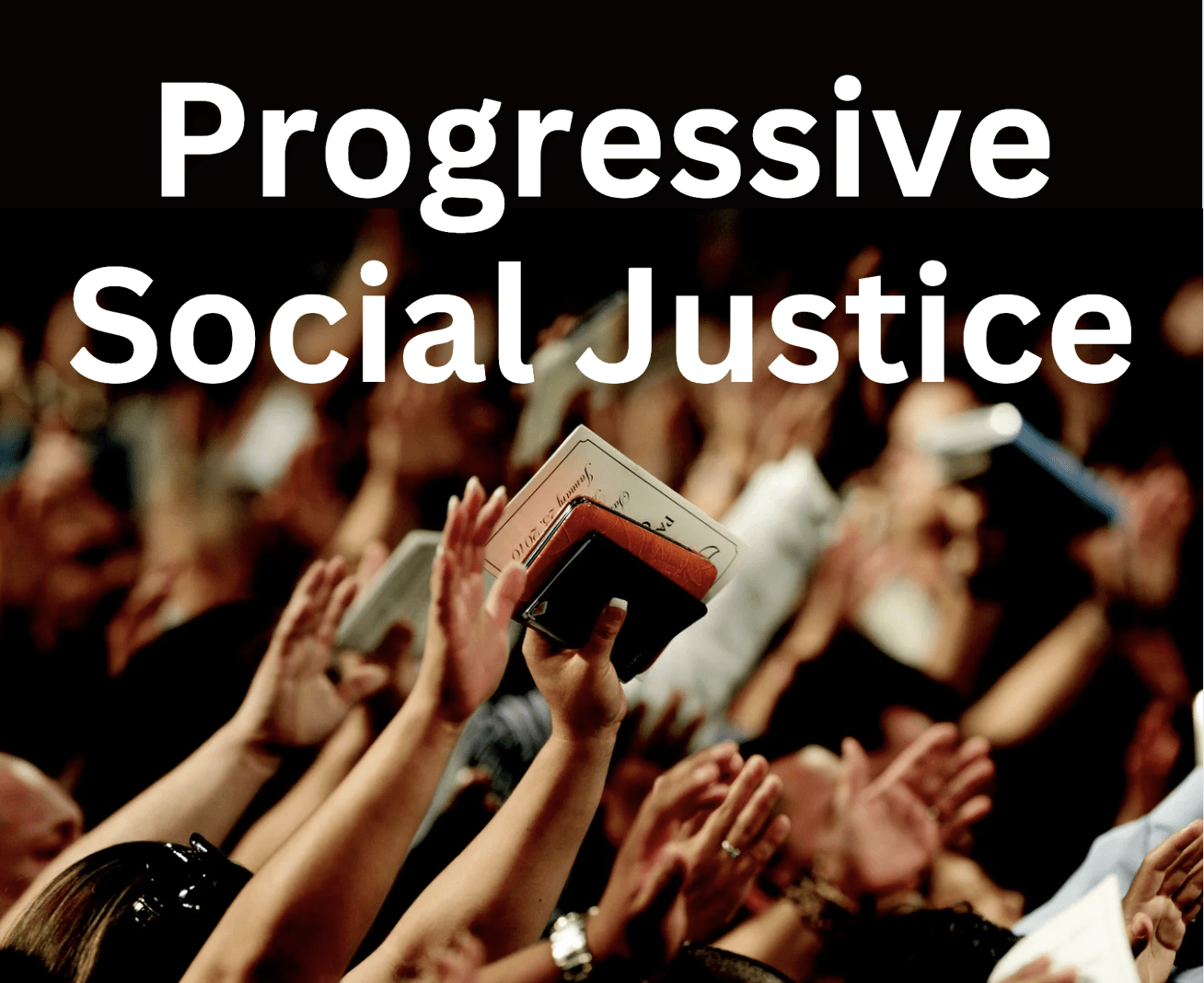How did Critical Race Theory, Critical Theory, Marxism, Feminism, and all sorts of other Leftist ideas enter the pulpits of churches and denominations around the world? As I mentioned in Part 2 of this series on Progressive Christianity, this movement is a works-based religion based on doing good in society. In a Progressive church, you often hear the call for feeding the poor and welcoming the refugee, and yes, those things are good and noble for Christians to do. Being the hands and feet of Jesus is loving your neighbor in a time of need.
But in a Progressive Christian church, loving your neighbors more often means Social and Political activism, where you must make your community and your world a better place. What does Activism look like in a Progressive Church?.
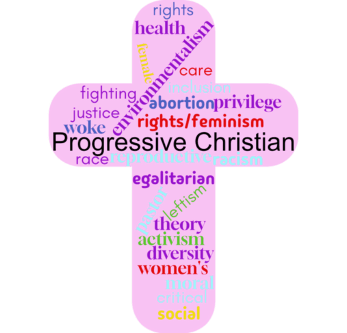 There are four main focus areas of Progressivism’s advocacy/activism:
There are four main focus areas of Progressivism’s advocacy/activism:
- Social Justice
- Environmentalism
- The “Woke” Gospel
- Feminism/Abortion
In this installment, I want to focus on the overarching theme of all four areas: Social Justice, which comes straight from Marxist ideology, with the sole purpose of redefining the traditional western Church “construct” in order to destroy it.
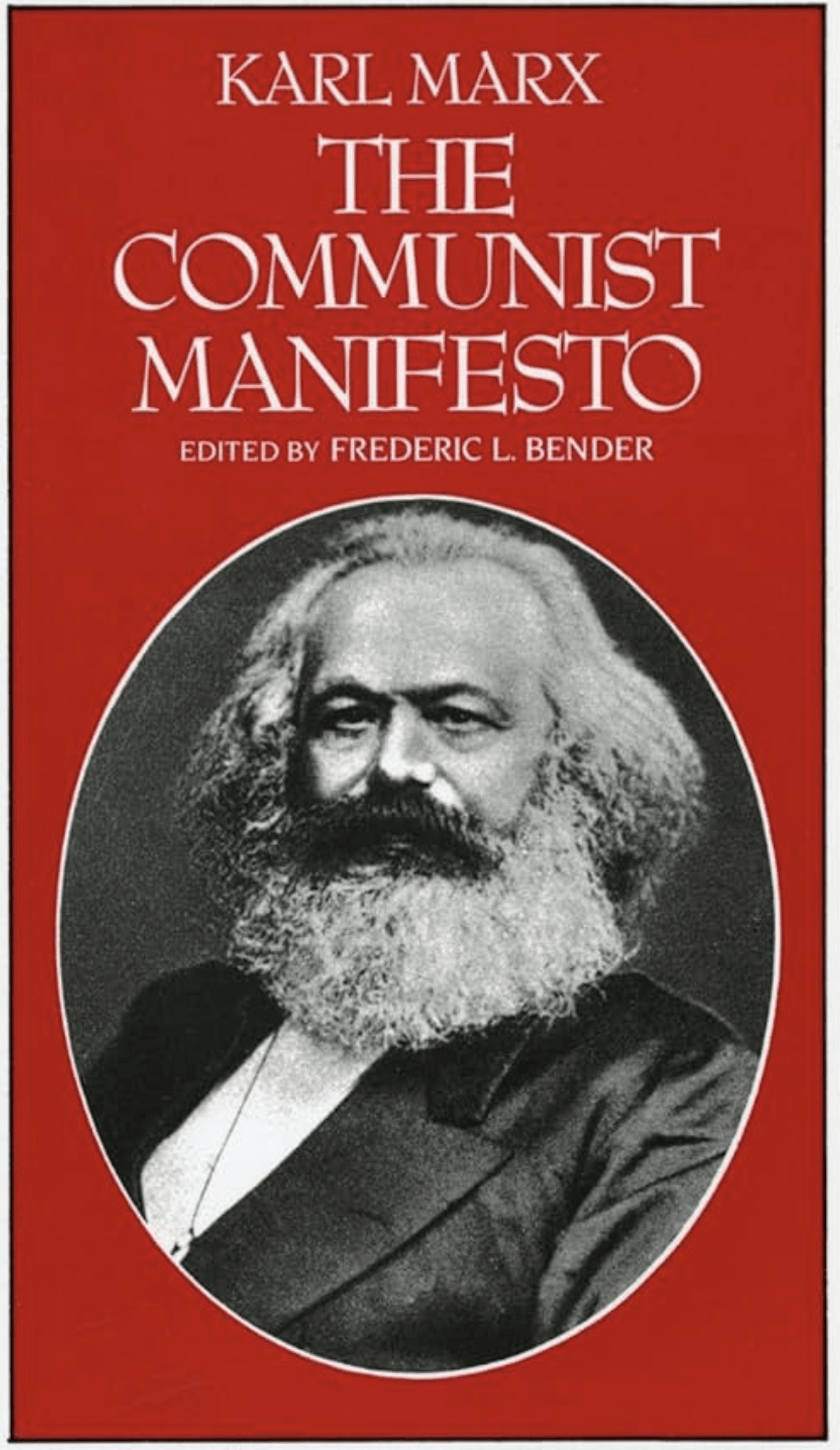 In his book The Communist Manifesto, Karl Marx said that religion is a symptom of the evil bourgeois society. He predicted that communism would eliminate the need for religion, and that once freed from capitalist oppression, people would no longer need the relief they sought in artificial, hypocritical faith: “The social principles of Christianity preach cowardice, self-contempt, abasement, submission, humility,” said Marx.
In his book The Communist Manifesto, Karl Marx said that religion is a symptom of the evil bourgeois society. He predicted that communism would eliminate the need for religion, and that once freed from capitalist oppression, people would no longer need the relief they sought in artificial, hypocritical faith: “The social principles of Christianity preach cowardice, self-contempt, abasement, submission, humility,” said Marx.
His vision for a perfect world required tearing down the evil authoritative institutions, including capitalism, the Church, and even the idea of God, to build a global, classless, religion-free society (sung to the tune of John Lennon’s “Imagine”). Anyone opposing these ideas became an enemy in its crosshairs.
Progressive ideologues expertly slapped the name of Jesus on Marxist principles in order to deconstruct the Church. In doing so, they’ve deconstructed the words we use in our doctrine by casting doubt on the real definitions (good vs. evil; male vs. female, etc.), until the words we use to define truth no longer mean what they used to mean. It’s a whole new way to view church, Jesus, salvation, and hope in the Gospel. In fact it is a very different jesus and different gospel.
Today’s modern evangelicals are eating this up, and have created organizations like Evangelicals For Social Action, which describes itself as “a catalyzing agent for Christ’s shalom via projects focused on cultural renewal, holistic ministry, political reflection and action, social justice and reconciliation, and creation care. Rather than a typical “think” tank, ESA is a “do” tank whose purpose is to mobilize movements for constructive social change.” Conversely, The Evangelical Network lists as one of its missional objectives to “offer a safe place for LGBT people and the evangelical church community to dialogue.”
A whole new class
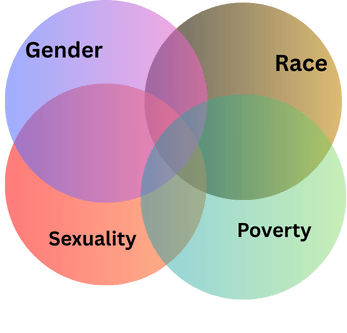
Social Justice is the overarching theme and it is emphasized over the biblical command that we are to take care of the suffering. But Progressive ideology has given us a new class of people we should focus on instead: the historically marginalized: Human beings who are told that they are victims in our society. That means anyone who is not caucasian or male, anyone who is living a lifestyle God has called sin, anyone who believes she was born in the wrong body. If you land in more than one of these categories, that intersection of your victimhood is more elevated.
This ideology destroys the need for Scripture, and turns the idea of the sufficiency of God’s Word on its head. Social Justice values mirror secular culture and undermine God’s Word on race and ethnicity, manhood and womanhood, and human sexuality, as well as other biblical doctrines and principles.
Social Justice has an incorrect beginning and a flawed conclusion, says The Statement On Social Justice and the Gospel (SJ&G). Buice explains how it all happened:
“When people lack a sufficient Bible they lack a guiding light. We have seen this pattern work its way into evangelical circles in the past. With the rise of theological liberalism, it was more than the Swiss theologian Karl Barth (1886–1968) and German theologian Rudolf Bultmann (1884–1976) who were permeating the ideas of an insufficient Bible. Theological liberalism ran through seminaries and local churches and major denominations such as the Southern Baptist Convention. The Conservative Resurgence was a return to the Bible and anytime in history where there is an awakening—the Bible is at the center. That reality presupposes the fact that for darkness to prevail, people must be led away from the Bible. That was the pattern in the pre-Reformation era and it was the same pattern in the days prior to the Conservative Resurgence. Make no mistake about it, the Word of God is sufficient and the very moment that we take a step away from the sufficiency of God’s Word we take a step into darkness.”
A new take on Post-Modernity
In the so-called “real world,” Post Modernism is a social movement; a rebellion against democracy and capitalism. Classic postmodernity is bent on implementing Marxism (without saying so). Rules are bad. Chaos and equality is good.
We see this in the news under Saul Alinsky’s Rules for Radicals. We see this in the modern churches under the guise of the ever-morphing Emergent Church Movement, which some believe has died out. It has not. Postmoderns in the Church still care about being subversive, not truthful. Real agendas are often concealed behind mission/vision statements.
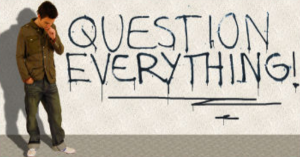 Suddenly, doubt is cool. It’s saying, “I don’t have all the answers and neither do you, but we know the One who does.” You see, knowing the answers from God’s Word makes you a legalistic Pharisee.
Suddenly, doubt is cool. It’s saying, “I don’t have all the answers and neither do you, but we know the One who does.” You see, knowing the answers from God’s Word makes you a legalistic Pharisee.
It all started right under your nose in the seeker-driven youth videos your church’s young people probably loved. Remember those videos in 2005 or so titled “I’m a Christian vs. I’m a Christ Follower?” Those were produced by a group called Christian No More. While the teens were in the youth room watching Rob Bell’s Nooma videos, churches played these clips during Sunday services. We were all having our faith deconstructed and shipwrecked.
Today, those youth are all grown up, and many have taken the words of Jesus to love your neighbor as a clarion call to substitute a gospel of activism for the Gospel of redemption. Loving your neighbor now means we must read certain non-Christian books and bring worldly programs into our churches to support causes such as racial equality, gender identity, or climate change. As long as you’re an activist – you’re doing God’s work, and you don’t have to give much attention to personal salvation, spiritual growth, and the study of Scripture.
 What about behavior? Holiness? Oh, you don’t have to live a moral lifestyle, in fact you can practice what the Bible calls Lawlessness.
What about behavior? Holiness? Oh, you don’t have to live a moral lifestyle, in fact you can practice what the Bible calls Lawlessness.
You DO need to take a stance on moral issues – but the social justice gospel gives us a twisted version of morality; telling us we must be more tolerant, inclusive, accepting and affirming of lifestyles that are considered sinful or contrary to Scripture’s teachings.
One thing Social Justice is not is authentic, historic, orthodox Christianity. It is deadly, carnal compromise. Progressives have made it a priority to re-write the Bible to ensure that it meets the Left’s political and Marxist agenda. For them it’s not about Truth at all.
That’s why we need to be discerning about the difference between being gracious and kind, or compromising on truth for the sake of being seen as loving. Truly loving someone means not wanting them to perish, but to know the reason for the hope we have in Christ.
In my next installment, I will discuss Christianity and “Creation Care,” the Environmental Manifesto.
Please look at our White Paper on Progressive Christianity, and check out my new series on Progressive “Christianity” to learn more.
